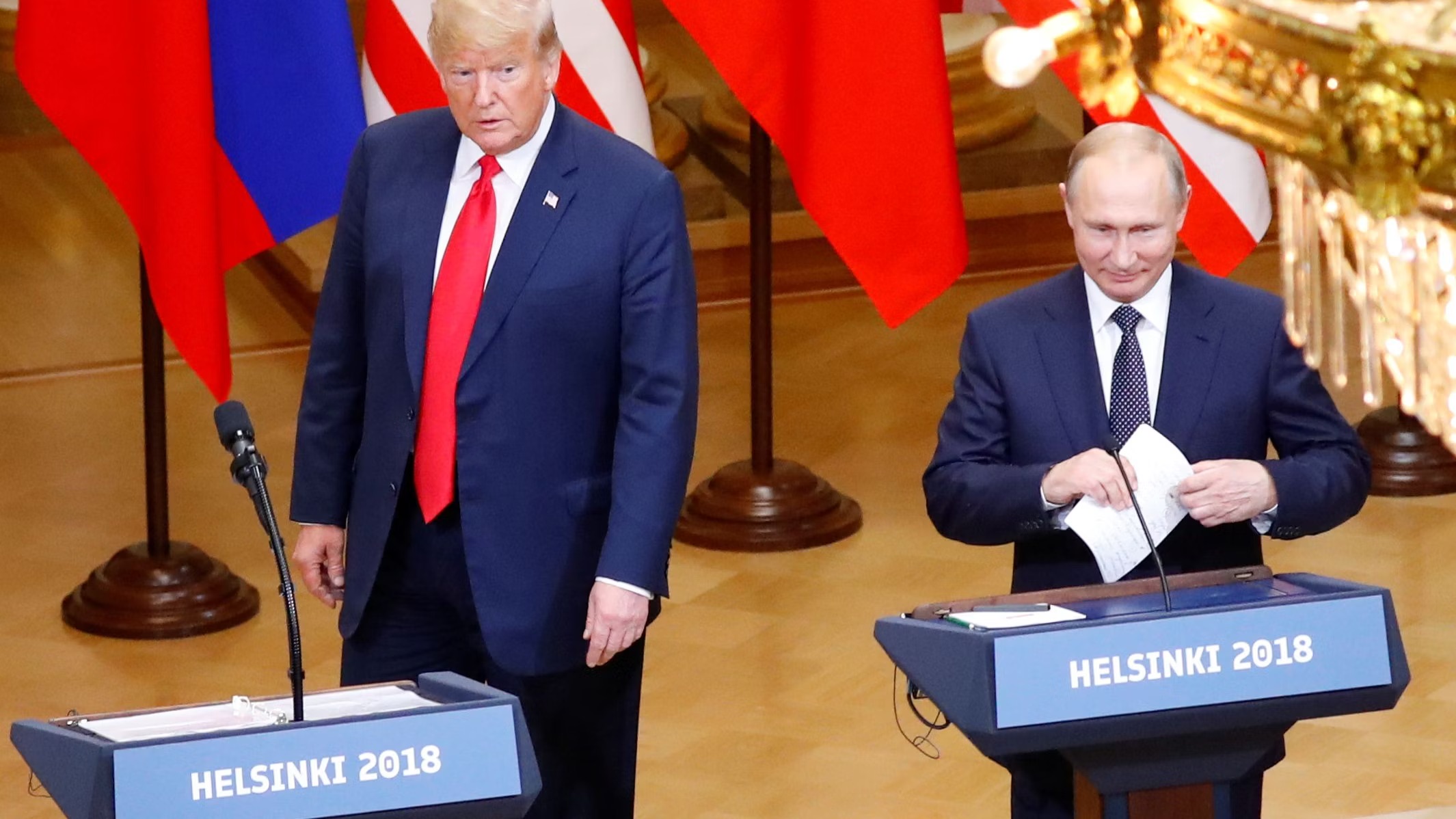
It remains uncertain how lasting and serious President Donald Trump’s recent turn against Vladimir Putin will be. While Trump has recently criticized the Russian leader in unprecedented terms and promised to send vital weapons to Ukraine, he has also granted Putin a 50-day grace period before imposing harsher economic sanctions.
Rewriting History on Trust
This apparent shift is accompanied by a notable revision of past statements. Trump has repeatedly claimed this week that he never truly trusted Putin.
“He’s fooled a lot of people,” Trump said at the White House, adding, “He fooled Clinton, Bush, Obama, Biden. He didn’t fool me.” In a BBC interview, when asked if he trusted Putin, Trump paused before replying, “I trust almost nobody, to be honest with you.”
Yet, this contradicts past statements. Just five months ago, Trump said he trusted Putin on the issue of peace in Ukraine, calling the Russian president a “former KGB officer” he knew “very well” and who “would tell me if he didn’t” want peace.
Even two weeks later, Trump dismissed concerns over Putin’s history of violating agreements, saying, “I think he’ll keep his word.” In April, he expressed confidence Putin would make peace.
Today, Trump claims that multiple deals seemed close to fruition but were repeatedly sabotaged by Putin’s actions on the ground. Despite this, he has chosen to delay secondary sanctions against countries buying Russian oil.
This evolving stance contributed to a heated Oval Office confrontation in February between Trump’s administration and Ukrainian President Volodymyr Zelensky. Zelensky criticized the U.S. for trusting Putin despite repeated breaches of ceasefire and prisoner exchange agreements.
Trump’s defense was to point out that previous presidents were disrespected by Russia, while he believed Russia “respected me.”
Familiar Pattern of Misjudgment
Trump has a history of vouching for adversarial leaders despite clear evidence to the contrary. Early in the COVID-19 pandemic, he praised China’s handling and transparency, only to later blame China for cover-ups.
Similarly, Trump has defended Putin’s denials of Russian election interference, even overruling his own intelligence community’s findings.
Though other politicians might reflect on misplaced trust, Trump casts doubt on previous administrations instead.
There are signs Trump tacitly recognizes some of his misjudgments, noting Putin’s “nice words” often fail to translate into action. Yet, in diplomacy, such pleasantries are more common among allies than adversaries.
Lending legitimacy to a leader like Putin is risky, especially when Moscow’s actions suggest otherwise.
What The Author Thinks
Trump’s recent flip-flopping highlights the danger of putting too much faith in authoritarian leaders who operate with vastly different agendas. While diplomacy requires some goodwill, it must be balanced with realistic assessments of intentions and actions. In Putin’s case, history has consistently shown that his words often mask aggressive strategies — a reality that should temper any future optimism.
Featured image credit: Heute
For more stories like it, click the +Follow button at the top of this page to follow us.
